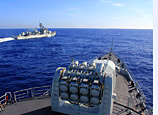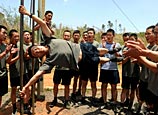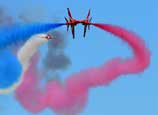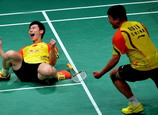
SYDNEY, May 27 (Xinhua) -- A new Veteran Mental Health Strategy to support contemporary Australian veterans and their families was released Monday by Minister for Veterans' Affairs Warren Snowdon.
The strategy sets out a ten-year framework for providing mental health care to veterans, underpinning the 26.4 million Australian dollars (25.89 million U.S. dollars) veteran mental health package announced in the 2013 federal budget.
Initiatives include 14.6 million Australian dollars (14.32 million U.S. dollars) to extend access to treatment without the need for compensation claims and 6.4 million Australian dollars (6. 28 million U.S. dollars) to introduce counselling for peacetime service and family groups.
The launch also coincided with the inaugural meeting of the Veteran Mental Health Clinical Reference Group, which will support the implementation of the strategy.
Snowdon said supporting the mental health needs of all veterans, including those who have recently left the defence force, is a high priority for the Department of Veterans' Affairs (DVA).
"With the drawdown in Afghanistan in motion, more service men and women will be returning to our shores, and we must ensure we are well positioned to provide them with the best possible support, should they need it," said Snowdon.
"The new Veteran Mental Health Strategy and the Clinical Reference Group will help the government to ensure our services cater for contemporary veterans who may have different circumstances and needs to their predecessors," he added.
The Clinical Reference Group includes leading psychiatrists, psychologists and a social worker, led by Dr Graeme Killer, principal medial adviser to the DVA.
The DVA spends around 165 million Australian dollars (161.78 million U.S. dollars) on mental health services each year, providing post-traumatic stress disorder programs; GP, psychiatrist, psychologist and social work services; pharmaceuticals and hospital services for those who need it.
Eligible clients can receive free treatment for diagnosed depression, anxiety and post-traumatic stress disorder, regardless of whether the condition is related to military service.
Veterans, peacekeepers and family members can also access free specialised counselling and group programs.
















 China’s weekly story
China’s weekly story
(2013.5.18- 5.24)


![]()
